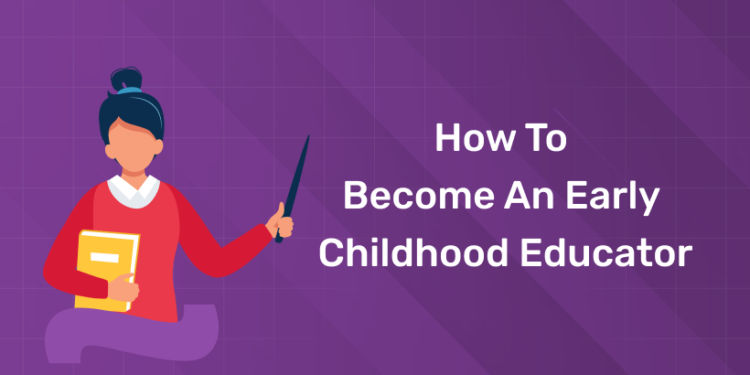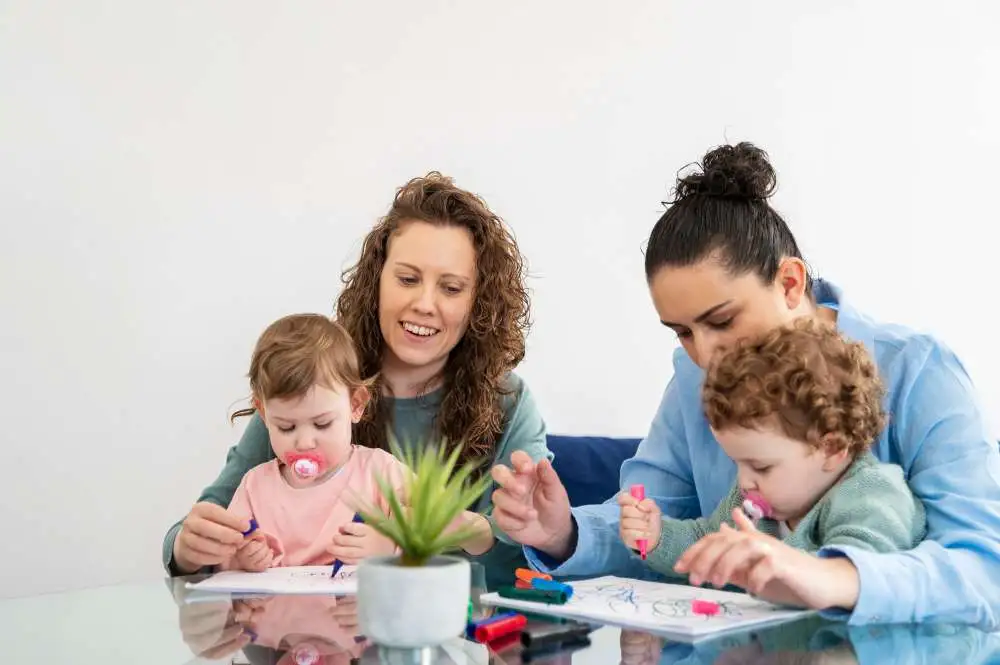Table of Contents
Key Takeaways
- ECE is all about caring for kids 0-8 years, and molding their emotional, cognitive, and social development.
- Becoming an early childhood educator demands a combination of academic credentials, interpersonal skills, and a dedication to nurturing young minds.
- Joining certified teacher training programmes such as the Entri Montessori Course can assist educator aspirants with procuring the appropriate knowledge, hands-on skills.
- ECE teachers have incredible careers in schools, preschools, daycares, and even as entrepreneurs with their own learning centres!
- With the emphasis on early education, skilled teachers are sought after everywhere in India and overseas.
Introduction: The basis of future learning
1: What is the primary focus of the first plane of development in the Montessori method?
Remember seeing the sparkle in a child’s face when they discover something. That flame of curiosity is the core of early childhood education. The early years of a child’s life aren’t just about playing or memorising alphabet. It’s also a time when their brain is growing at light speed–taking in the information, feelings, and practices that will impact their life.
This is the critical role that early childhood educators serve. They’re not just educators, they’re instigators of creativity, development, and self-belief. If you adore kids and desire a purposeful profession that shapes youthful minds, early childhood education might be your vocation.
So in this comprehensive guide, we’ll walk you through how to become an early childhood educator, what skills you need, what qualifications are required, and how courses like the Entri Montessori Course can help you make the right first step towards your dream career.
Unlock your passion for education and shape young minds as a Montessori teacher!
Get Certified & Start Your Montessori Career
Montessori Teacher Training Course by Entri App: Gain expert skills, earn certification, and kickstart your teaching career.
Join Now!What is an Early Childhood Education?
ECE are formalized instruction and learning programmes for children aged from birth to eight years old. Preschool, kindergarten, and early primary grades.
ECE’s aim is not only academic advancement, but also emotional intelligence, creativity, social awareness, and problem-solving skills. Preschools provide a safe, warm, and enriching environment where children can discover, play, and learn at their own rhythm.
A good ECE program emphasizes
- Holistic growth: physical, emotional, cognitive, and social.
- Learn through play: kids learn best when they’re actively doing.
- Child-centred approach: every kid learns differently, so education changes to their rhythm.
- Emotional support: becoming more empathic, patient, and kind.
Roles and Responsibilities of an Early Childhood Educator
- Lesson Planning: ECEs plan lessons that balance learning and play.
- Child Assessment: Observe and assess each child’s development to identify any learning or behavioural issues.
- Emotional Support: Create a nurturing environment that promotes self-esteem and emotional security.
- Engage with Families: Work closely with families to share with them their child’s progress and how to continue development at home.
- Safe Environment: Ensure the learning space is physically safe and emotionally supportive.
By providing this holistic learning experience, ECEs not only enhance academic readiness but also help children develop critical life skills.
How to become an Early Childhood Educator
Being an early childhood educator is a mix of formal education, relevant skills and hands on experience. Here’s a step by step guide to get you started.
1. Get a Relevant Qualification
To be a qualified early childhood educator you will need to have at least a diploma or degree in early childhood education. Programs like Entri’s Diploma in Early Childhood Care and Education covers child development theories, classroom management and curriculum planning.
2. Get Key Skills
Working with young children requires skills beyond classroom teaching. These are:
- Patience and Empathy: Children need patience especially when they struggle with tasks or emotions.
- Good Communication: ECEs need to communicate with children and parents.
- Creativity: Engaging lesson plans make learning fun.
- Adaptability: Every child is different and flexibility in teaching is key.
- Problem Solving Skills: Managing conflicts especially in group settings requires quick thinking.
3. Get Hands On Experience
Field experience is important in early childhood education. This can be through internships, volunteer opportunities or practicum placements where you can gain real world skills. Entri’s Early Childhood Educator Course provides practical experience by connecting you with educational settings where you can apply what you have learned.
4. Get Necessary Certifications
In many places becoming an early childhood educator requires specific certifications especially in first aid and child safety. Check what certifications are required in your region or country. The Entri course can guide you on the certifications needed for your area.
5. Continuous Professional Development
ECE is a field that requires continuous learning. Attending workshops, reading latest research or enrolling in additional training programs can improve your skills and keep you updated on new teaching methods. Entri’s courses are designed to keep you current.
6. Consider Specialisations
Some educators choose to specialize in specific areas of early childhood education such as language development, special needs education or infant/toddler care. Specializing can open up more career opportunities and allow you to focus on what you are passionate about.
Get Certified & Start Your Montessori Career
Montessori Teacher Training Course by Entri App: Gain expert skills, earn certification, and kickstart your teaching career.
Join Now!Benefits of becoming a preschool teacher
Being an early childhood educator is more than a career, it’s a difference for children. Here are the perks:
- Job Satisfaction: I mean, what could be better than seeing kid’s learn life skills, and to see them flourish is super rewarding.
- Career Flexibility: ECE credentials permit you to work in preschools, daycares and kindergartens.
- Sustained Need: As early childhood education gains prominence, so does the need for educated ECE practitioners.
- Career Advancement: Many ECE teachers find themselves specialising or even operating their own daycare or preschool.
- Real work: As a preschool teacher, you shape little minds, prepare them for a lifetime of success.
Unlock your passion for education and shape young minds as a Montessori teacher!
Career Opportunities and Growth
India’s early childhood education (ECE) is changing and strong teacher demand is building. Those are just a handful of the careers in this field.
- Preschool Teacher
- Work with preschools, nursery schools, daycares etc to make them ECCE programmes.
- Montessori Teacher
- Care for my own at Montessori schools where kids discover what it means to be independent learners through exploration.
- Early Childhood Education Consultant
- Provide expert advice on courses, classes and teacher education.
- Child Development Specialist
- Collaborate with businesses to create childhood initiatives focused on physical, emotional and intellectual growth.
- Curriculum Developer
- Create preschool teacher and school resources.
Backed by the right credentials and experience, ECE offers fulfilling careers that can impact the lives of children and families.
Conclusion
Early childhood educator is an awesome profession–you get to influence young minds and lay down the foundation for their achievement. From lesson plans to grit, preschool teachers are essential to child development. With the right skill set, experience, and commitment to always learning, you can excel in this space and stand out.
If you desire an organized career route, then Entri’s Montessori Education is your entrée. With a strict syllabus, real-time practice, and online videos, Entri’s course has what it takes to make you an early childhood teacher. Sign up now and take your first step.
Get Certified & Start Your Montessori Career
Montessori Teacher Training Course by Entri App: Gain expert skills, earn certification, and kickstart your teaching career.
Join Now!Frequently Asked Questions
What qualifications do I need to become an Early Childhood Educator?
To become an Early Childhood Educator, you typically need a diploma or degree in Early Childhood Education. Courses like Entri’s Diploma in Early Childhood Care and Education can provide you with the necessary training.
What does an Early Childhood Educator do?
Early Childhood Educators are responsible for nurturing young children’s development, focusing on social, cognitive, and emotional growth, and preparing them for future academic success.
How long does it take to become an Early Childhood Educator?
This varies depending on the program. A diploma course, such as Entri’s, generally takes about a year, while degrees may take longer.
What skills are essential for an Early Childhood Educator?
Key skills include patience, empathy, communication, creativity, and adaptability. These skills help educators meet the unique needs of young children.
What is the salary of an Early Childhood Educator in India?
Salaries vary by location, experience, and setting. Early educators in India typically start at INR 15,000-30,000 per month, with growth as they gain experience and additional certifications.
Is Entri’s Diploma in Early Childhood Education recognised?
Yes, Entri’s Diploma in Early Childhood Care and Education provides comprehensive training and a recognised certification for early childhood educators.
Can I work in different educational settings with an early childhood education qualification?
Absolutely! Early Childhood Educators can work in preschools, daycares, kindergartens, and even as private tutors for young children.
Is there a demand for Early Childhood Educators in India?
Yes, there is a growing demand for trained Early Childhood Educators as the importance of early learning is increasingly recognised in India.
How does Entri’s Early Childhood Educator course help with practical experience?
Entri’s course includes hands-on practicum opportunities, allowing students to apply their skills in real educational settings and gain practical experience.
How do I enroll in Entri’s Early Childhood Educator course?
Visit the Entri website and navigate to their Diploma in Early Childhood Care and Education course to get started. It’s an online program that offers flexibility and comprehensive learning. Or click here














